#Irish American History
Text

x
#Duffy's cut#mass grave#Pennsylvania#irish american#irish american history#Pennsylvania history#worker history#workers rights#labor rights#unionize
7 notes
·
View notes
Text
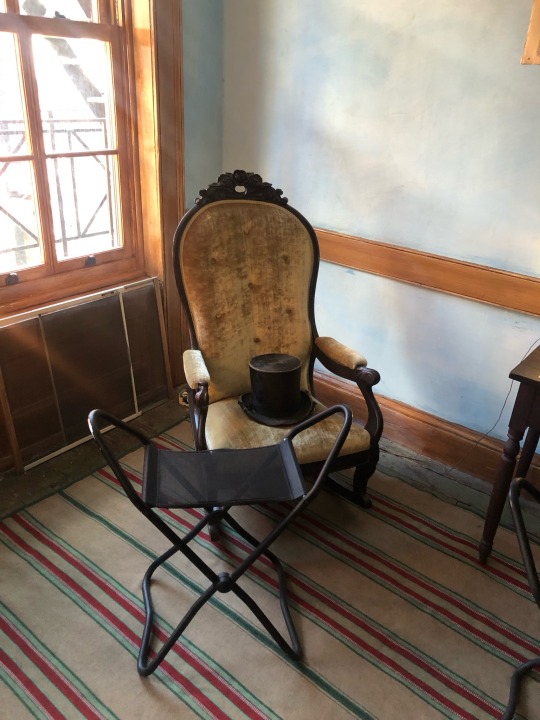
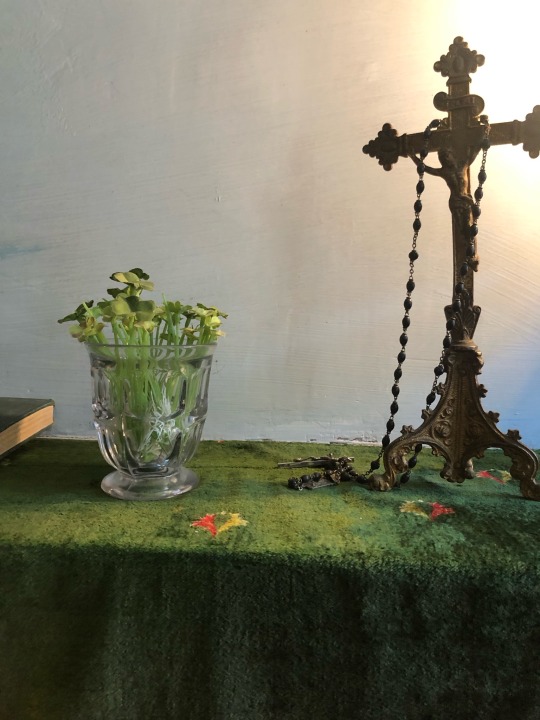
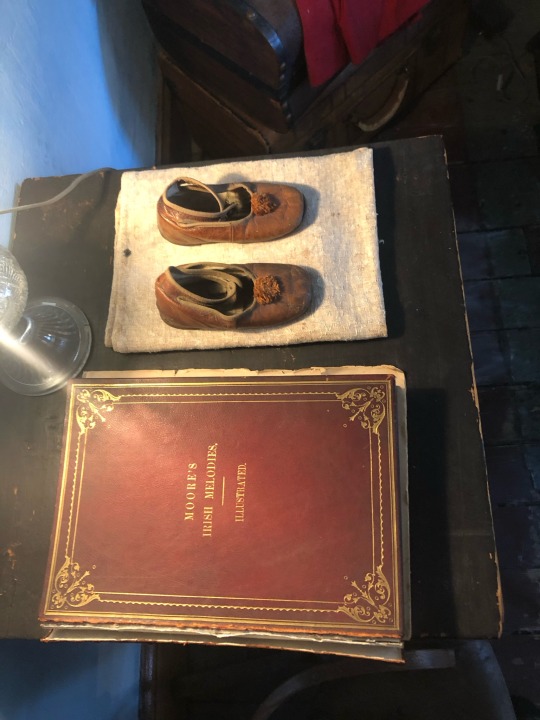
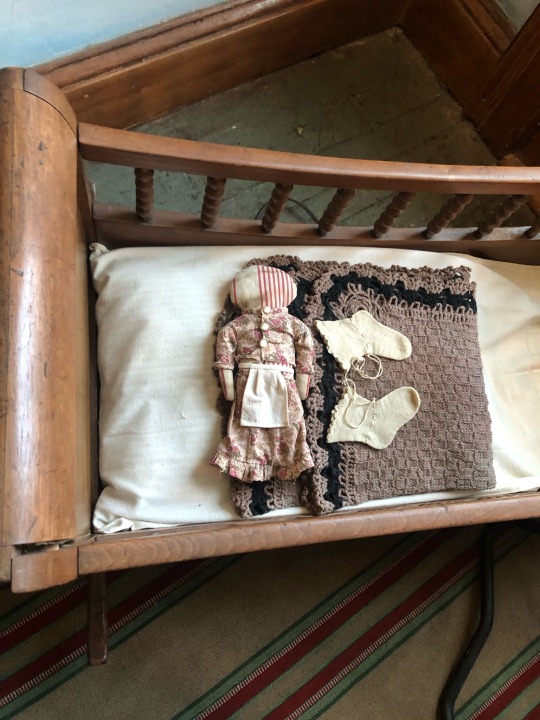
Tenement Museum, New York City
#tenement museum#nyc#photography#this was their Irish immigration tour#immigration history#nyc history#Irish American history#feels ages ago that I did this tour but this was only Sunday
2 notes
·
View notes
Photo

From the late 1800s through the mid-1900s, generations of Morristown residents shopped at James Lawless Groceries & Provisions. James and his wife Catherine Kelly Lawless were born in Ireland and built a prosperous life for their family thanks to their store on South and Elm Streets.
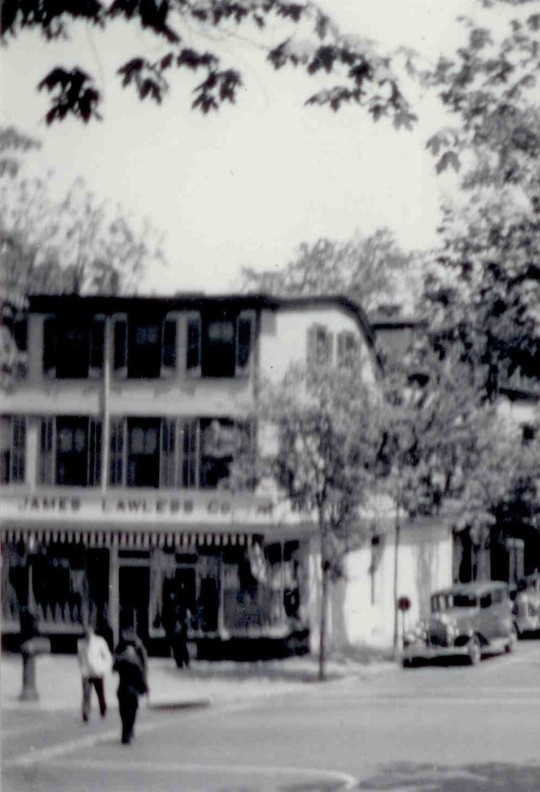
When James died in 1925, his son James Richard took over operating of the store. The Lawless family were active members of the Church of the Assumption, located a few blocks south of their home.
3 notes
·
View notes
Text
The Emerald Enigma: Unraveling Deadeye's Disguise - A Historic Civil War Mystery
In "The Emerald Enigma: Unraveling Deadeye's Disguise - A Historic Civil War Mystery," delves into the captivating world of Irish soldiers in the American Civil War. Amidst the chaos of battle, a peculiar figure emerges known as Deadeye, a skilled marksman with a secret past. As suspicions grow, an intrepid detective, driven by curiosity and justice, embarks on a perilous journey to expose Deadeye's true identity. Set against the backdrop of war-torn America, this enthralling historical mystery takes readers on a thrilling rollercoaster of intrigue, espionage, and unexpected alliances. Prepare to unravel the enigma of Deadeye's disguise as the past and present collide in a quest for truth.
#Dead Eye In Drag#Mystery Solved#Irish In The Civil War#Historical Mystery#CivilWar Detective#Irish American History#Undercover Investigation#Intrigue And Betrayal#Military Espionage#Dual Identities#Union Army#Confederate Spy#Irish Heritage#Secrets Unveiled#War Time Intrigue#Historical Fiction#Mysterious Past#Code breakers#Unmasking The Truth#Action And Suspense
0 notes
Photo

On This Day in New York City History March 19, 1928: Irish-American actor Patrick Joseph McGoohan (March 19, 1928 - January 13, 2009) was born in Astoria, Queens.
McGoohan was raised in Ireland and had quite the acting career. He starred on stage, TV and movies. While he won a number of Emmy Awards for his work on the Peter Falk drama Columbo, he is best knows as being Prisoner 6 in the cult favorite Sci-Fi series The Prisoner.
#PatrickMcGoohan #IrishAmericanHistory #ThePrisoner #Columbo #TelevisionHistory #HollywoodHistory #NewYorkHistory #NYHistory #NYCHistory #AstoriaHistory #History #Historia #Histoire #Geschichte #HistorySisco
https://www.instagram.com/p/Cp_QUNzOkig/?igshid=NGJjMDIxMWI=
#Patrick McGoohan#Irish American History#The Prisoner#Columbo#Television History#Hollywood History#New York History#NY History#NYC History#Astoria History#History#Historia#Histoire#Geschichte#HistorySisco
1 note
·
View note
Text
Like, it's fine to relate songs you like to fiction you like. That's good and fun! Hozier's music is often political commentary, but it's also about love and emotion and has inspirations in other genres of music and fiction (esp Unreal Unearth, which is explicitly based on Dante's Inferno).
The trouble comes not with linking, you know, a love song to your favorite blorbo, it's when you reduce Hozier the person into a magical sad fairy man stereotype Too Good for This World in a way that both reduces the influence of black music and artists on his work AND fetishizes Irishness as a whole as if Ireland is a fantasy kingdom of the past and not a real place populated by real people.
#hozier#if you're an american with irish or otherwise celtic ancestry (like i am)#it's understandable to feel the ache of disconnection and the urge to romanticize the place our ancestors came from#but the way to express that is to educate yourself about your family's history and the modern countries#not turn them into a fantasyland in your mind and dehumanize current citizens of those places#hozier's music is magical the same way any good art is magical#not because he's an otherworldly fairy man separate from modern politics or his varied (and often black) artistic influences#bog post
180 notes
·
View notes
Text
In which I try not to be That Guy TM when it comes to Irish ancestors: An exploration of ancestry, diaspora and culture
Because of The Horrors TM in my life atm I've been looking into my biological family tree. I'm adopted but estranged from my adoptive family and I never met my biological family since I was adopted just short of my 2nd birthday. I've been tracing my ancestry for about 3 years now and it's genuinely quite stress relieving to me. It's also fun and challenging from a research standpoint - putting together my own family tree gave me the skills to write articles like this one I wrote in 2022 about historical Welsh queer people, for example.
Lately, I've been finding out more about my Irish ancestors while an adoptee (and thus not knowing any of my biological family) - but also doing this as a Celticist and tired of people doing the 'my sister's friend's cousin's father's mother was Irish' thing. This has created an almost unbearable tension between curiosity at my own ancestry while trying not to be That Guy who finds out about one (1) Irish ancestor hundreds of years ago and is weird about it.
Especially since mine are quite distant ancestors - my great, great, great grandparents were born in Dublin and in a tiny village in County Down called Dunnaman (near Kilkeel). However, they were Irish Catholics and emigrated to Liverpool in the 1870s - all of their subsequent children and grandchildren were born in Liverpool and all of the above + great grandchildren were raised Catholic - including my grandmother (who died before I was born). So there was an obvious attempt to maintain that heritage. There's even evidence my great, great, great grandmother at least spoke Irish (which, as she was born in County Down, would have been Ulster Irish).
The problems with uncritically throwing oneself at an ancestor's nationality:
Now, not all North Americans of Irish (or Welsh, Scottish, Italian, Scandinavian, German etc.) descent do this - but there's a very vocal set of North Americans of Irish descent who find awe and interest in their ancestry - which is actually quite a positive thing! - however, due to either temporal or cultural disconnect, they may end up doing or saying things (and not necessarily with bad intentions) which can have a negative impact on the Irish and the Irish language (or [nationality] and [language(s) associated with that nationality].
I'm reminded of the time an American commented on a Welsh language rights post I made in support of Welsh speakers, but they accidentally ended up using a white nationalist slogan by mistake. It can be a minefield - and with regards to Ireland specifically, mistakes like that can be so much worse. To literally give my own (mild) example, today I decided to relearn Irish (since I haven't spoken any in years since being taught basics at undergrad) and picked up a blank notebook I bought at Tesco the other week, while completely forgetting the inside cover of the notebook was orange. I was planning on decorating the notebook anyway and painted it a different colour. While I know that nobody would really hold it against me if I didn't change the colour, I just know that walking around with an orange notebook filled with Irish I'm relearning because of interest in my Catholic ancestors could be a confusing set of messages, at the very least. If you don't understand why this is, look up the meanings of the colours on the flag of Ireland.
Which is to say, even those of us in Northern Europe who have significantly greater physical proximity to Ireland than North America (and therefore should know better) still can and do get things wrong. And not just benignly wrong like in my case.
The tendency for some North Americans of Irish descent (Canada isn't exempt from this) to conflate Irish ancestry with a contemporary connection to the modern countries located on the island of Ireland as a whole can have results ranging from 'a bit weird' to 'jesus fucking christ'. As a Celticist, I've seen far, far too many Americans of Irish descent try to weigh in on modern Irish politics without any background knowledge or tact at all - and naturally they stake their claim on modern Irish politics entirely on the premise of having distant Irish ancestors. Or, even worse, things start to get all phrenological.
'Irish blood' and the nonexistence thereof:
'Irish blood' is continually evoked by some to validate their sense of 'Irishness' and the obsession with '[insert nationality] blood' is a distinctly North American phenomenon- likely related to or an offshoot of the concept of 'blood quantum', in which enrolment into some Native American nations and tribes is determined by how much 'Native blood' a person has. Notably, many people who would ostensibly have been described under this system as 'full blood' were registered by the US as 'half blood'. This is a method of genocide intended to wipe out tribes and nations by imposing strict measures of who does or does not qualify to enrol into a tribe or nation. This concept seems to have been extrapolated over time (in a North American context at least) into the idea of descent from other nationalities' being measured in a similar or adjacent way. This is how you end up with some North Americans declaring they are '1/8 Italian and 1/4 Irish' on their dad's side etc. While in Europe (where these nationalities hail from, crucially) this practice is seen as a really weird way to describe your ancestry. In general, it's simply 'my 4 times grandfather came from Spain' or 'my great great grandfather on my dad's side came from Finland' etc. if it comes up at all. For various political reasons, many Europeans with descent from multiple other European nationalities may choose to omit to mention descent from certain nationalities, especially if in recent history there has been conflict between their birth nation and an ancestor's nation. The most famous example of this is literally the British royal family changing their surname from the German Saxe-Coburg and Gotha to the more 'British sounding' Windsor in 1917 due to the onset of the First World War.
Where it gets really weird (and also very offensive and rude) is when cultural stereotypes get invoked alongside the whole 'blood' thing in usually quite damaging and/or disparaging ways. I've seen way too many North Americans of Irish descent claim they're alcoholics because they have 'Irish blood' or even worse, claim it's normal to domestically abuse their spouses because of it!! (Genuine thing I have seen btw). Same goes for claiming to be a naturally good chef because of 'Italian blood' and so on. As a general rule, people from the place where your ancestors were from don't generally like to be inherently be considered drunks or prone to violence due to their nationality. Or have weird and inaccurate idealisms projected onto their language or cuisine.
Aren't there any positives?
It wouldn't be fair to make a post like this without mentioning some of the positives that can come from interest in an Irish ancestor. Like I mentioned at the start of this post, I myself felt inspired to relearn Irish because of my own Irish ancestors. I was taught the Connacht dialect at undergrad, however, since my ancestor was from County Down, I'm going to try and learn Ulster Irish instead. One doesn't need Irish ancestors to learn Irish of course - when I learned I wasn't aware I had any Irish ancestors. But being inspired to learn Irish because of an ancestor can't hurt and directly increases the number of Irish speakers in the world (provided you keep at it). This is a net positive for the language as a whole.
Similarly, people who have educated themselves on Irish politics because of their ancestry and genuinely learned something are also a positive thing to come out of discovering Irish ancestors. In my experience, these people are the kind of people I enjoy talking to about being a Celticist because they actively want to learn and respect the cultures being talked about. Which is huge to me!
Conclusion:
As a Welsh speaker whose national identity is more-or-less Jan Morris-esque, my Irish ancestry is an interesting facet of my ancestry I simply didn't know about before. And being an adopted person, I can sympathise with the general sentiment of a lot of white North Americans of feeling disconnected or alienated from any ancestral heritage. The conditions which create That Guy TM as described above rely on that sense of alienation to propagate a very ineffective, tactless and often very insensitive approach to Irish and other European cultures. But the important thing is that that approach can be challenged by people genuinely interested in their ancestry who are also conscientious of the living versions of the cultures their ancestors hailed from.
For me, that means learning Irish in a dialect my ancestors are likely to have spoken. I also visited the library today to check out some books on the Irish emigration to England and the sociopolitical reasons behind that emigration. I know the broad strokes, but the details are desirable to know to get a better idea of the why and how the country of my birth had a hand in creating the conditions which led my ancestors to emigrate in the first place. I think the world would be a better place if people took the time to understand the history and politics of ancestors which don't share their nationality.
As always, reblogs and thoughts are welcomed and encouraged!
Thank you for reading to the end - and if you'd like to support me, please see my pinned post. Diolch!
#long post#Ireland#Irish#Gaelige#Celtic Studies#Celticist#Irish diaspora#Irish americans#blood quantum cw#racism cw#(just in case)#ancestry#geneology#family history#I've probably made typos but it's 11:40pm and I need to go to sleep
49 notes
·
View notes
Text
thinking about the museum guests who get surprised by our photo of an Irish-Canadian immigrant maid on her wedding day, because she’s dressed indistinguishably from a wealthy woman of the same era (to modern eyes, at least)
and the thirtysomething Black femme sapphic couple I talked to at another museum who had never seen extant images of Black women in fashionable Victorian clothing until that week, and were absolutely delighted by them
thinking about how empowering it can be for historically oppressed people to learn that, no, beauty and elegance and artistic expression within this specific cultural framework were not the exclusive purview of wealthy whites until like 1920
(thinking about who it serves to erase those images and that knowledge from the public consciousness)
#dress history#history#art history#historical fashion#my favorite example is the hoop skirt#because guys those were UBIQUITOUS#cheap to make and cheap to buy#Queen Victoria wore them. Irish immigrant servants wore them. factory workers had to be expressly banned from wearing them#for safety reasons but still- that indicates that they WERE following the fashion#there are even accounts of enslaved women wearing them to church and such#and yet nowadays most Americans associate them exclusively with white Southern Belles(TM)#I've even been asked at events (while wearing 1860s) if northern women in general really wore hoops too
2K notes
·
View notes
Text

Thomas Hovenden (Irish, active in U.S., 1840-1895) • Still Life with Fan and Roses • 1874 • Smithsonian American Art Museum, Washington, D.C.
#still life#art#painting#fine art#art history#thomas hovenden#irish artist#19th century american art#oil painting#art of the still life blog#smithsonian American art museum#art blogs on tumblr#art lovers on tumblr#art appreciation#1870s art#artwork
25 notes
·
View notes
Text
Time Travel Question 25: Medievalish I
These Questions are the result of suggestions from the previous iteration.
Please add new suggestions below if you have them for future consideration.
The first person who suggested this one first was incredibly poetic in the notes.
#Time Travel#Middle Ages#Indigenous History#Pueblo#Anasazi#Lorenzo the Great#Florence#Cathedrals#Aotearoa#North American History#South American History#Central American History#African History#Irish History#Malaysian History#Persian History#Metalworking#Japanese History#The Pillow Book#Murasaki Shikibu#The Tale of Genji#Sei Shōnagon#Carolingians
101 notes
·
View notes
Text
I was thinking about how allot of legends of Saint Patrick are basically him demonstrating that the Christian god is more powerful than local pagan deities to get converts and it made me think of like anime community power scalers and it made me think of these memes to create as hypothetical memes in early Middle Ages Irish social media:
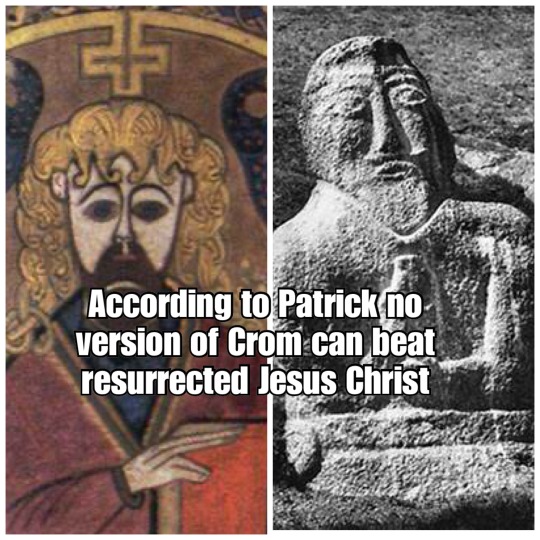

I apologize if there’s anything wrong with the Irish language one colonialism did a number on it even in Ireland so it didn’t exactly survive in the diaspora for me so I used google translate 😅
#shut up alex#personal#celtic#irish american#irish#ireland#saint patrick’s day#saint patrick#history#history memes#irish history#irish history memes#irish culture#gaelic#celtic history#my memes#homemade memes#original memes
34 notes
·
View notes
Text
youtube
#irish american#great famine#great hunger#history#biden#israel's war crimes#israel is a terrorist state#Youtube
23 notes
·
View notes
Text

Unidentified private, 9th Infantry Regiment, Company I. Possibly a member of the 9th Massachusetts (Irish) Regiment. Source: USAHEC.
#civil war#american civil war#union#federal#soldier#1860s#boy#history#american#irish#massachusetts#immigrants
22 notes
·
View notes
Text
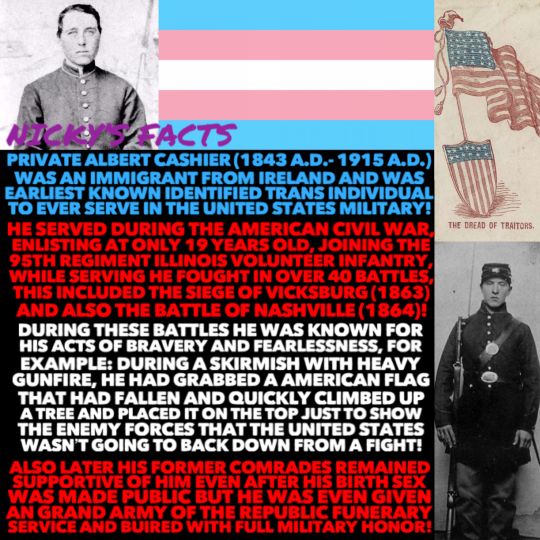
Albert was dunking on Confederates and challenging Gender norms before it was cool!🇺🇸
🇺🇸🏳️⚧️🇺🇸
#history#albert cashier#united states#military#lgbt#american civil war#historical figures#transgender#american history#veteran#irish#immigrants#lgbtq#trans men#american pride#union#soilder#lgbt history#us military#nashville#transgender history#vicksburg#pride#usa#war hero#army#nickys facts
106 notes
·
View notes
Text
Did you know, historically, the Irish weren't considered "white people"? This was because they'd been colonized by England. This same anti-Irish sentiment was once common in America.
When the Irish Americans gained "white" status, many became racists, and Irish who never left Ireland began to feel Irish Americans had forgotten where they came from when they got white privilege. This is why it falls so flat to me when my fellow Irish Americans say, "My ancestors weren't slave owners, they were oppressed".
Sure! But we're not anymore. Things have changed, and we now benefit from the oppression of other ethnic groups who remain minorities.
Zionists are doing the same thing now. They've gotten white privilege, and are forgetting the oppression they came from in favor of becoming the oppressor.
We see this same disappoint the Irish had/have in Irish Americans in other Jewish people, particularly Holocaust survivors, who have called out Zionists.
History is repeating itself here.
12 notes
·
View notes
Photo
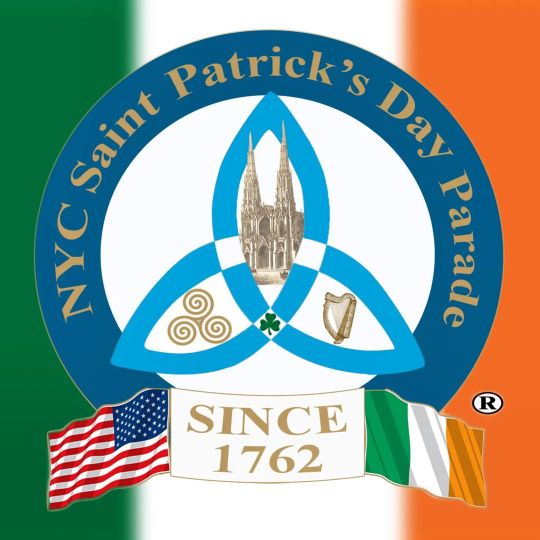
On This Day in New York City History March 17, 1762: The first recorded St. Patrick's Day Parade in New York City is held.
According to the NYC St. Patrick's Day Parade website:
"The first NYC St. Patrick’s Day Parade was comprised of a band of homesick, Irish ex-patriots and Irish military members serving with the British Army stationed in the colonies in New York. This was a time when the wearing of green was a sign of Irish pride but was banned in Ireland. In that 1762 parade, participants reveled in the freedom to speak Irish, wear green, sing Irish songs and play the pipes to Irish tunes that were meaningful to the Irish immigrants of that time."
The original parade route went past Old St. Patrick’s Cathedral (now Basilica) which is located on the corner of Mott and Prince Streets. Today the Parade is held along NYC's Fifth Avenue, passing by St. Patrick's Cathedral.
#NYCStPatricksDayParade #StPatricksDay #IrishAmericanHistory #IrishHistory #NewYorkHistory #NYHistory #NYCHistory #History #Historia #Histoire #Geschichte #HistorySisco (at St. Patrick's Cathedral)
https://www.instagram.com/p/Cp42nw7u4Lx/?igshid=NGJjMDIxMWI=
#NYC St. Patrick's Day Parade#St Patrick's Day#Irish American History#Irish History#New York History#NY History#NYC History#History#Historia#Histoire#Geschichte#HistorySisco
0 notes